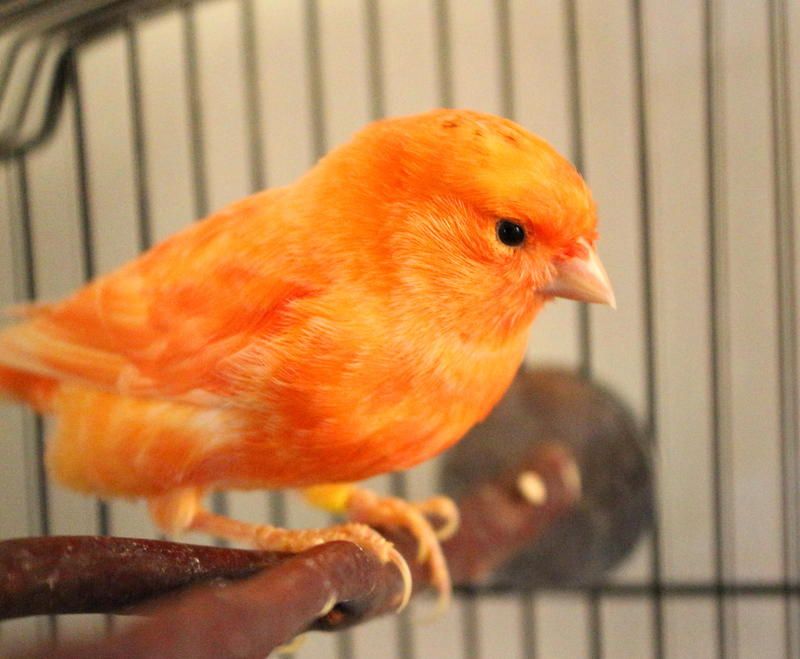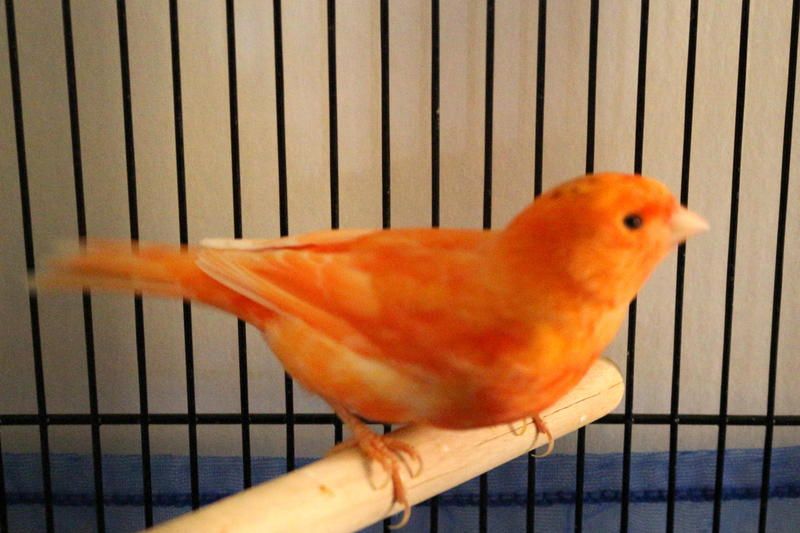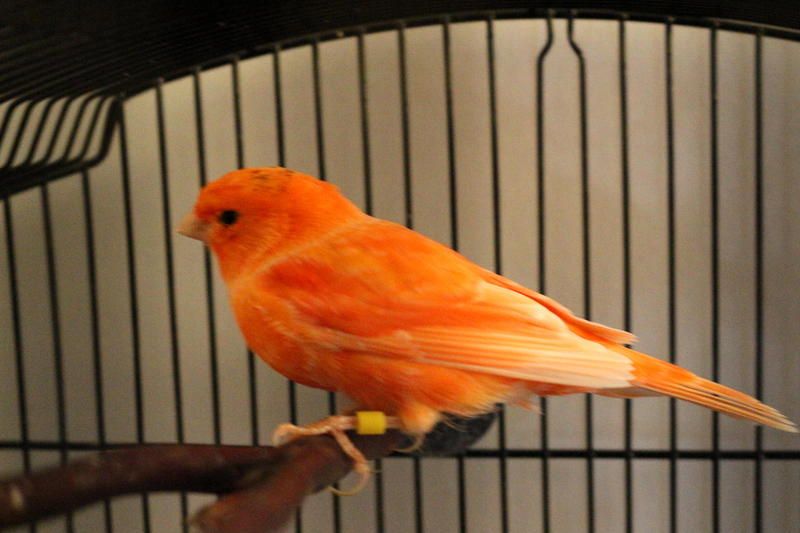I bought my red factor canary back in April. At the time, he had a dark grey patch on the back of his head which has since molted out. Does this mean he is a red factor split for variegated? I'm still trying to wrap my head around bird genetics.
Also, how old should a canary be for breeding, and which color female is the best match for a male red factor?
Canary Genetics Question...
- Nerine
- Callow Courter

- Posts: 190
- Joined: Sun Mar 13, 2016 5:15 pm
Canary Genetics Question...
2 green singers
2 javas
2 zebra finches
2 bourkes
1 lovebird
2 javas
2 zebra finches
2 bourkes
1 lovebird
- Paul's Amazing Birds
- Flirty Bird

- Posts: 227
- Joined: Sun Oct 18, 2015 4:41 pm
- Location: (SF/CA) paul.94949@gmail.com
Re: Canary Genetics Question...
Hi Nereine,
Yes, it means your red factor carries some variegated genes but if it molted to clear, that's a good thing. If you want to keep this bird and try to breed some clear red factors, you might try to find a clear red factor hen.
Feather type is also important. Old timers say that for best results you should always try to match a hard feather with a soft feather (sometimes called frosted). Hard to hard makes smaller birds and soft to soft can cause some feather problems in the offspring.
My breeding season doesn't start until early March. Just finishing up the molting season now and still using a color enhancer in the water called canthaxanthin until early next month. They get a variety of seed and plenty of high protein egg food through the winter months to help with the molt and also because other species in the aviary, like the gouldians, are still nesting.
Yes, it means your red factor carries some variegated genes but if it molted to clear, that's a good thing. If you want to keep this bird and try to breed some clear red factors, you might try to find a clear red factor hen.
Feather type is also important. Old timers say that for best results you should always try to match a hard feather with a soft feather (sometimes called frosted). Hard to hard makes smaller birds and soft to soft can cause some feather problems in the offspring.
My breeding season doesn't start until early March. Just finishing up the molting season now and still using a color enhancer in the water called canthaxanthin until early next month. They get a variety of seed and plenty of high protein egg food through the winter months to help with the molt and also because other species in the aviary, like the gouldians, are still nesting.
Favorite hobby is continuing to improve on a landscaped, weather protected, 500 sq ft mixed aviary with 23 fascinating species. 30 years in the making; currently have
19 different Finch species, 2 types of Doves, plus 23 Button Quail and 30 pair of clear Red Factor Canaries.
19 different Finch species, 2 types of Doves, plus 23 Button Quail and 30 pair of clear Red Factor Canaries.
- Nerine
- Callow Courter

- Posts: 190
- Joined: Sun Mar 13, 2016 5:15 pm
Re: Canary Genetics Question...
Thanks Paul, so I guess my next question is, is my canary a hard feather or a soft feather? Posting some pics below, let me know if you can't view them, or need better photos.






2 green singers
2 javas
2 zebra finches
2 bourkes
1 lovebird
2 javas
2 zebra finches
2 bourkes
1 lovebird
- Paul's Amazing Birds
- Flirty Bird

- Posts: 227
- Joined: Sun Oct 18, 2015 4:41 pm
- Location: (SF/CA) paul.94949@gmail.com
Re: Canary Genetics Question...
Nice bird! Your third pic looks to me to be a hard feather.
Here are some examples of the soft (or frosted) and hard feather birds. The one in my profile is also a hard feather.
If you're color feeding you might want to continue for a few more weeks to get a more even finish like this one. Paul
Here are some examples of the soft (or frosted) and hard feather birds. The one in my profile is also a hard feather.
If you're color feeding you might want to continue for a few more weeks to get a more even finish like this one. Paul
Favorite hobby is continuing to improve on a landscaped, weather protected, 500 sq ft mixed aviary with 23 fascinating species. 30 years in the making; currently have
19 different Finch species, 2 types of Doves, plus 23 Button Quail and 30 pair of clear Red Factor Canaries.
19 different Finch species, 2 types of Doves, plus 23 Button Quail and 30 pair of clear Red Factor Canaries.